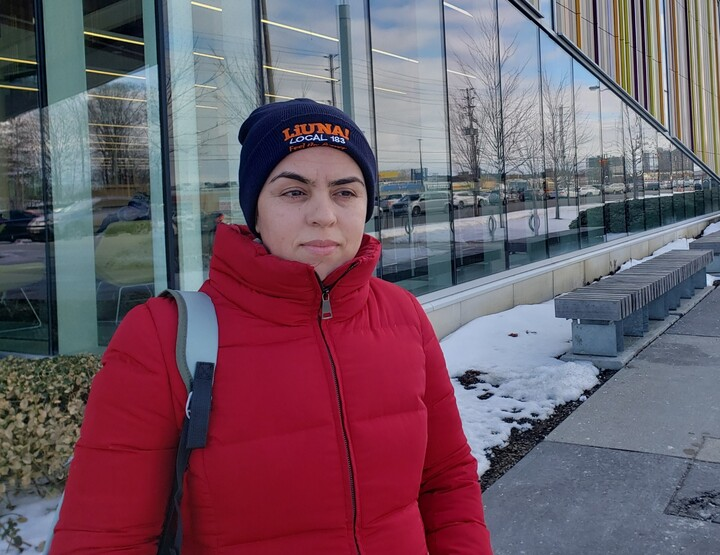Support strong Canadian climate journalism for 2025
On International Women’s Day, Najia Raufi’s thoughts turn to the women and girls left behind in her birthplace of Afghanistan.
“Women and girls lost everything in Afghanistan,” said Raufi, who moved to Toronto as a refugee last year. Although she was forced to leave her home, Raufi maintains close ties. She is the founder of an online school for girls called Every Home is a School.
“The Taliban banned them from education, work and all basic rights, but we don’t give up and that is why I started this school, so at least some girls can continue their education in Afghanistan,” said Raufi.
Students in her online school learn English, math, physics and arts with the help of some Afghan volunteer teachers living aboard, she said.
Since the Taliban seized control of Afghanistan in August 2021, girls have been banned from returning to school. The regime has also banned women from attending university, working in many jobs and even leaving home without male relatives.
UNICEF estimates three million girls have been deprived of education since the Taliban returned to power in Afghanistan.
“Women and girls in Afghanistan want to study and they must continue their education in any possible way. I had this opportunity to start an online school and support them,” she said.
Raufi was making plans to run the online school back in Afghanistan but the return of the Taliban shattered her dream and she fled immediately fearing for her life.
“I knew if the Taliban returned to power, they would ban women and girls from education and work. That’s what exactly happened,” said Raufi. “The Taliban has nearly restored all their rules that they had enforced against women and girls back in the 1990s.”
The Taliban ruled most of Afghanistan from 1996 to 2001 until a U.S.-led military invasion deposed the regime for harbouring members of the international Islamist terrorist group al-Qaida, which carried out the Sept. 11, 2001 terror attacks.
War and politics have twice forced Raufi to flee Afghanistan. The first time was in 1996 when Raufi was in Grade 4 and the Taliban banned her from school.
Her family fled the war and moved as refugees, first to Pakistan and then to Iran. “When the Taliban regime was removed from power in 2001, I came back to Afghanistan with a hope for a better future, but we lost again and here after 20 years, I am a refugee in Canada,” she said.
Human Rights Watch (HRW) says the Taliban rule has had a devastating impact on Afghan women and girls and urges the regime to drop its restrictions on women.
“The crisis for women and girls in Afghanistan is escalating, with no end in sight,” said Heather Barr, associate women’s rights director at HRW, in a statement on the group’s website. “Taliban policies have rapidly turned many women and girls into virtual prisoners in their homes, depriving the country of one of its most precious resources — the skills and talents of the female half of the population.”
Raufi said she can’t celebrate International Women’s Day when the future for Afghan girls and women is so bleak.
“The celebration of International Women’s Day before the Taliban was meaningful for us. We would celebrate this day [because] we had many successes and achievements, but now there is no life for Afghan women, unfortunately.”
She calls on the international community to support and advocate for the rights of Afghan women and girls and pressure the Taliban to reverse the ban on girls' education and work.
This story was produced in partnership with Journalists for Human Rights for the Afghan Journalists-in-Residence program funded by the Meta Journalism Project.





Comments